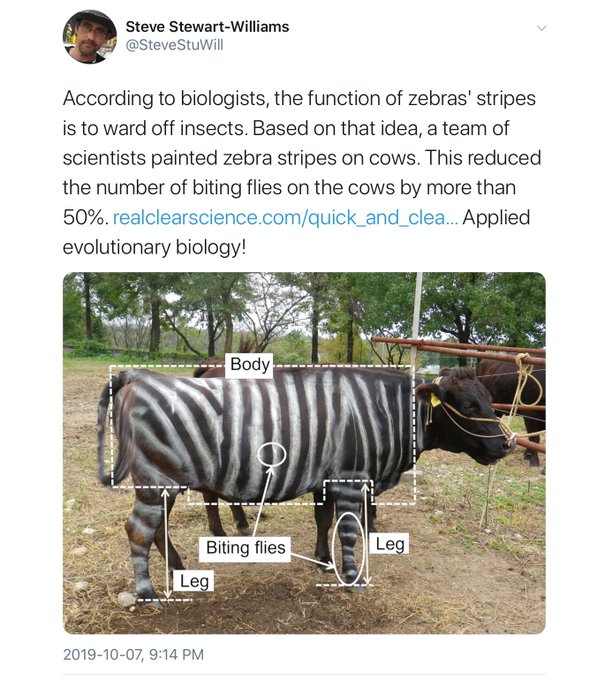Science!
-
Its very much like the 1970's Woody Allen movie Sleeper, where Woody is cryogenicaly frozen, and wakes up 200 years in the future where scientists have discovered that red meat and smoking are good for you
-
Goddam it everything is out to kill me
As if the Crocs, snakes, spiders, sharks, and jellyfish weren't enough, now the mushrooms are out to get me
I knew I was getting dumber
-
I always wanted to see this tested. Glad somebody did!
-
@Salacious-Crumb the labelling on that picture is crucial.
-
@Salacious-Crumb the labelling on that picture is crucial.
Oh, so that's a leg?
-
@antipodean apparently. Underneath a so called "body".
-
For every hundred thousand blowhards who spend their waking hours telling us how to live our lives there is one Gem like this old bloke quietly changing the world. And he almost didn’t because old white men are apparently worth less than others.
A 97-year-old academic who has become the oldest winner of a Nobel prize criticised Oxford University for forcing him to retire at 65.
John Goodenough was awarded the prize for chemistry for helping to invent the lithium-ion batteries that powered the portable electronics revolution.
He is still working at the University of Texas at Austin, having left Oxford 33 years ago after realising he would lose his job at retirement age. “I fled,” he said. “I didn’t want to retire. They don’t make you retire at a certain age in Texas. It’s foolish. It’s foolish to make people retire. I’ve had 33 good years since I was forced to retire in England. That’s why I left. I’m working every day.”
He argued that Oxford was throwing away expertise through maintaining its policy of compulsory retirement, which has been abandoned by all other leading UK universities other than Cambridge. “Even if you don’t have all the talent, you have the experience to guide people who have the talent. It’s foolish,” he said.
A change in the law in 2011 ended default retirement ages in Britain but companies and institutions were allowed to keep them if they could argue the case. Oxford and Cambridge claim they must be able to remove professors aged over 67 to help younger academics. Oxford said the policy helped to “refresh” the workforce and promote equality and diversity.
Other academics said that Professor Goodenough was a prime example of why Oxbridge needed to rethink its approach. “The key point is that, for over 30 years John Goodenough, now in his nineties, has been leading the world in his scientific field,” Sir John Meurig Thomas, former director of the Royal Institution and a critic of compulsory retirement, said.
A plaque on the wall of a laboratory at Oxford University marks the spot where Professor Goodenough developed the insights that led to the batteries that now power almost every rechargeable device. The discovery was made in his final years before compulsory retirement and after he had made his name with RAM, a form of temporary computer memory storage.
Professor Goodenough is working on improved methods of energy storage. Helena Braga, from the University of Porto in Portugal, one of his collaborators, said she did not have to make allowances for his age. “Oh my God, he works very hard,” she said. “He works on the weekends too.”
Professor Goodenough was in London yesterday collecting the Royal Society’s Copley Medal, the world’s oldest scientific award. Professor Braga, who was with him, said: “I went to his room and told him ‘You won the Nobel prize’,” she said. “He was lying down. I said, ‘Wake up, wake up! You won the Nobel prize.’ ”
He said that he had not expected it but “I’m very happy to be around long enough to receive it”. He shares the prize with M Stanley Whittingham, a British materials scientist now at Binghamton University, in New York state, and Akira Yoshino, from Meijo University in Japan.
Lithium-ion technology is worth billions but Professor Goodenough said that he had not benefited from any royalties. “I don’t really care too much about the money. The lawyers always end up with the money.”
It is not completely true though that he has not personally benefited from his invention of the lithium-ion battery. He is pretty certain, in fact, that he owes his life to one. “The ticker is still working,” he said. “I have a pacemaker.”
-
-
-
-
"Plastic" made from fish waste
https://www.dezeen.com/2019/11/15/marinatex-lucy-hughes-james-dyson-award-design/




